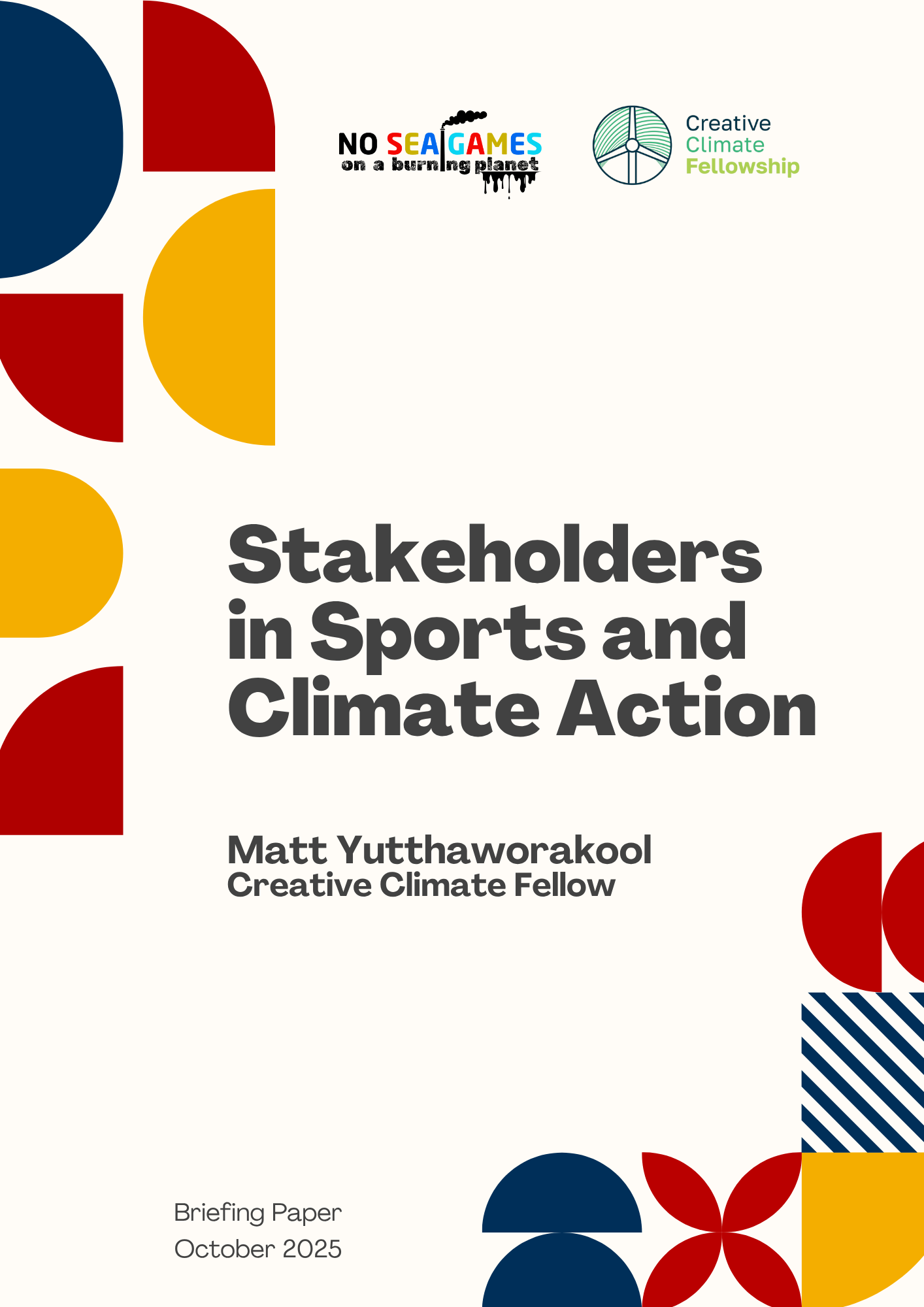Stakeholders in Sports and Climate Action
Author: Saittawut Yutthaworakool
Sport and climate change are deeply interconnected. While sporting events contribute to greenhouse gas emissions through travel, energy use, and infrastructure, they are also increasingly disrupted by the impacts of climate change, including rising temperatures, air pollution, and extreme weather. This dual relationship positions sport as both a contributor to and a casualty of the climate crisis, but also as a unique catalyst for collective action and behavioural change. This briefing paper identifies and examines the key stakeholder groups at the intersection of sport and climate action. From international institutions such as the UN and UNEP, which provide global frameworks, to sports federations and national governments that integrate sustainability into policies and event planning, each actor plays a critical role in reshaping the future of sport. Corporate sponsors and supply chain actors drive innovation and financing for sustainable operations, while athletes, fans, and media amplify climate awareness through their visibility and influence. NGOs, civil society, and academia provide accountability, research, and capacity-building to ensure that climate commitments in sport translate into measurable progress. The paper highlights that achieving a climate-resilient and climate-responsible sports ecosystem requires cross-sectoral collaboration and stronger policy coherence.


